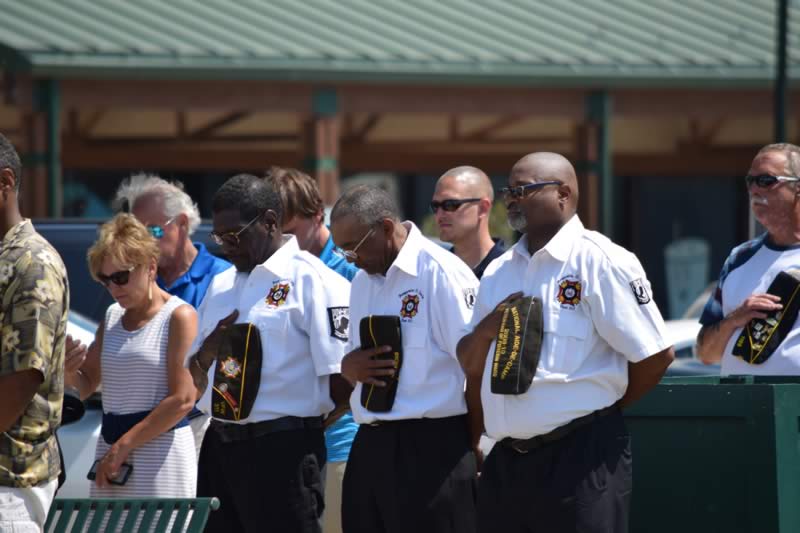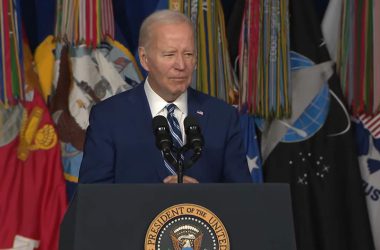
Defense Secretary Ash Carter and Army Gen. Martin E. Dempsey, chairman of the Joint Chiefs of Staff, brief reporters at the Pentagon, April 16, 2015. DoD photo by U.S. Army Sgt. 1st Class Clydell Kinchen
WASHINGTON–(ENEWSPF)–April 16, 2015 – Defense Secretary Ash Carter today discussed his top priorities and other defense issues at a Pentagon news conference.
Carter met with reporters along with Army Gen. Martin E. Dempsey, chairman of the Joint Chiefs of Staff.
Defense Priorities
The secretary said his first priority is to help President Barack Obama to make the best possible national security decisions and then to implement those decisions.
Second, he said, is to ensure the strength and health of Defense Department personnel around the world, and the third priority is the future of the department’s course, its people and its technology.
To achieve these priorities, Carter said, he’s traveled to Afghanistan and Kuwait to meet with American personnel working there, and he has worked with Congress to secure the resources needed to protect the country and continue to build the force of the future while gaining stability in the defense budget.
“I’ve spoken with our partners in the State Department and other agencies,” he said, “about working together in new ways and on new endeavors and visited with allies, and partners — both here and in Washington — and just last week in the Asia-Pacific.”
The defense secretary said he’s also met with service members across the country and abroad to express his appreciation while ensuring they are treated with dignity and respect.
Efforts Continue
That work continues this week, Carter said, noting “productive” discussions with Iraq’s prime minister and defense minister about the U.S.-Iraqi security partnership, and the “real progress we’re making in the campaign against [the Islamic State of Iraq and the Levant].”
“I was up-front in our meetings,” he said, “about how a lasting victory over ISIL requires inclusive governance in Baghdad and respect for local populations in all areas liberated from ISIL control.”
Next week, Carter said, he’ll speak with ROTC cadets and midshipmen in Washington about sexual assault prevention and response, and then will meet with battalion- and brigade-level first responders for their perspective on preventing sexual assault and combating retaliation.
Finally, the defense secretary said, he’ll travel to California to deliver a lecture at Stanford University on the future of technology, innovation and cybersecurity before meeting with technology executives to discuss working together for mutual benefit.
Turmoil in Yemen
Carter also addressed a range of situations abroad beginning with the situation in Yemen and the threat posed by al-Qaida in the Arabian Peninsula. The terrorist group, he said, is a branch of al-Qaida that has shown a particular determination to attack Americans and the United States, and is, therefore, of serious concern. “We continue to watch them and take action against [them],” he added.
It’s easier to conduct counterterrorism operations when Yemen has a settled government, Carter said. “But in the meantime,” he added, “we need to, and do through other means, protect ourselves against [al-Qaida in the Arabian Peninsula], because they are dangerous. And there are other things we can do to act against them, and we are.”
Economic Sanctions Against Russia
Asked whether economic sanctions against Russia for its actions in Ukraine have been effective, Carter said they have.
Russia is participating in fomenting trouble in eastern Ukraine, he said, and as a principal point of pressure, the United States has used economic pressure. It’s important to note that in addition to the United States, European nations also have imposed sanctions, “because they have the most economic leverage over Russia.”
“I’m not an economist,” he said, “but I understand that those sanctions are having an effect on Russia, along with plummeting oil prices. Those are the two factors bringing pressure to bear upon the Russian economy. So the first line of pressure for us is economic and political, and we’re doing that.”
Carter emphasized that “abundant evidence” has convinced the international community to take these strong economic steps.
“My understanding is … that this is having a real effect on the Russian economy,” he said. “At some point, the Russian people are going to ask themselves whether these kinds of adventures are worth the price.”
Providing Options
Regarding the nuclear situation in Iran, Carter said that while it’s not the Defense Department’s role to conduct those negotiations, there are two roles it does have.
“The first is to make sure that we have, as the president says, other options on the table,” he said. “That’s something we take very seriously here, and we do have other options on the table.”
The second, Carter said, is to continue to play a stabilizing role in the region as a whole with all U.S. friends and allies while continuing to strengthen their capabilities and confidence. “Those are our two jobs here in the Defense Department, and we’re very attentive to them,” he said.
By Army Sgt. 1st Class Tyrone C. Marshall Jr.
Source: defense.gov








